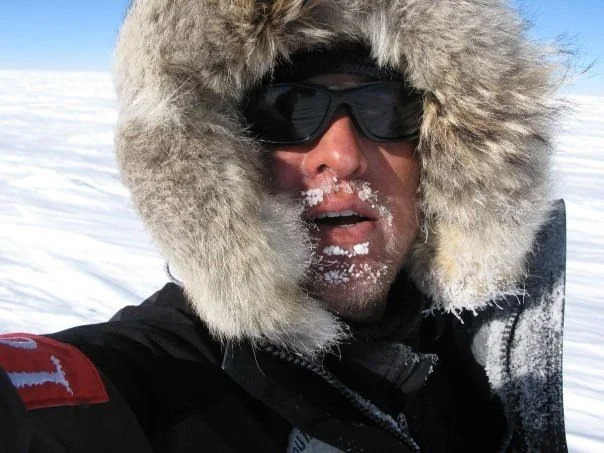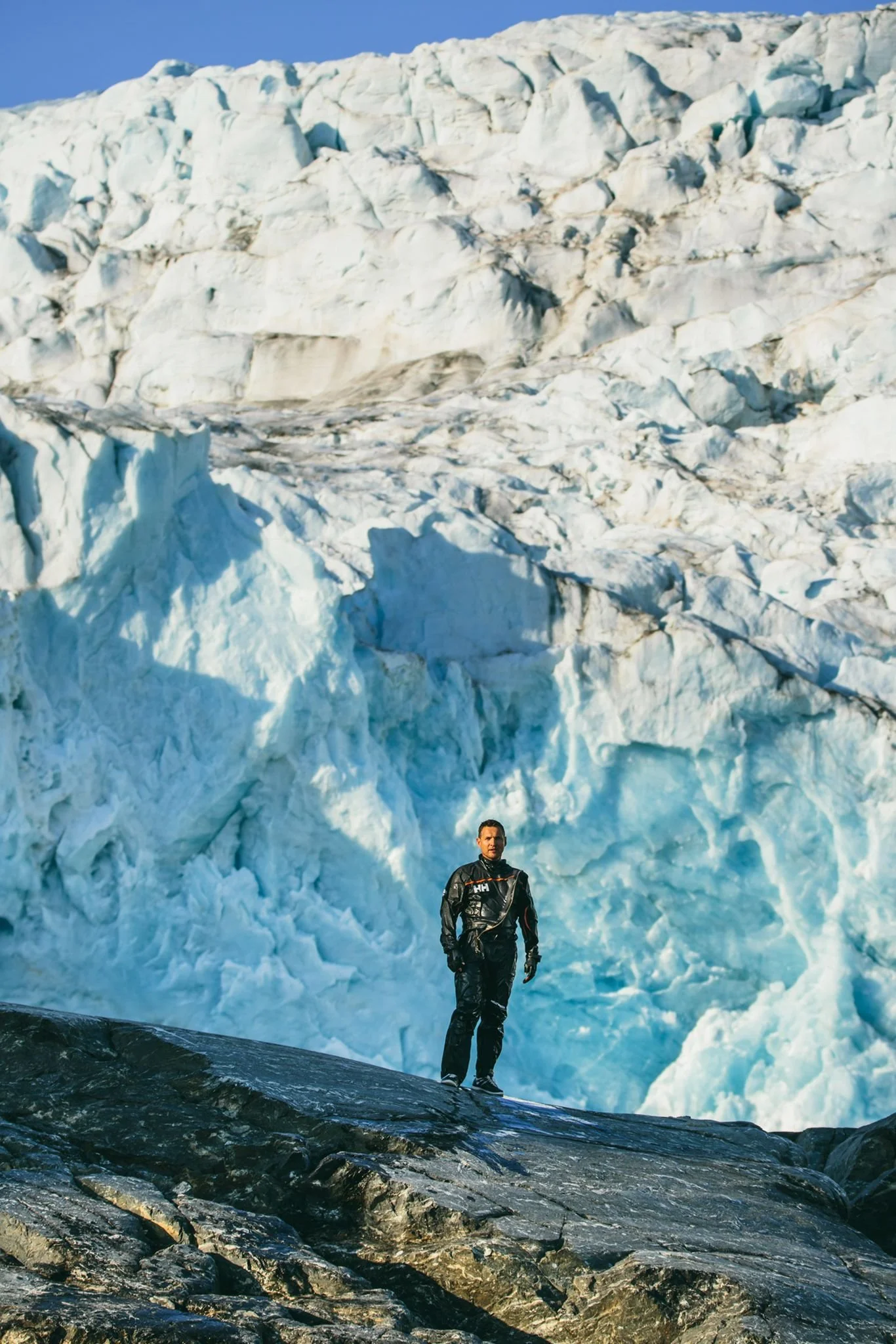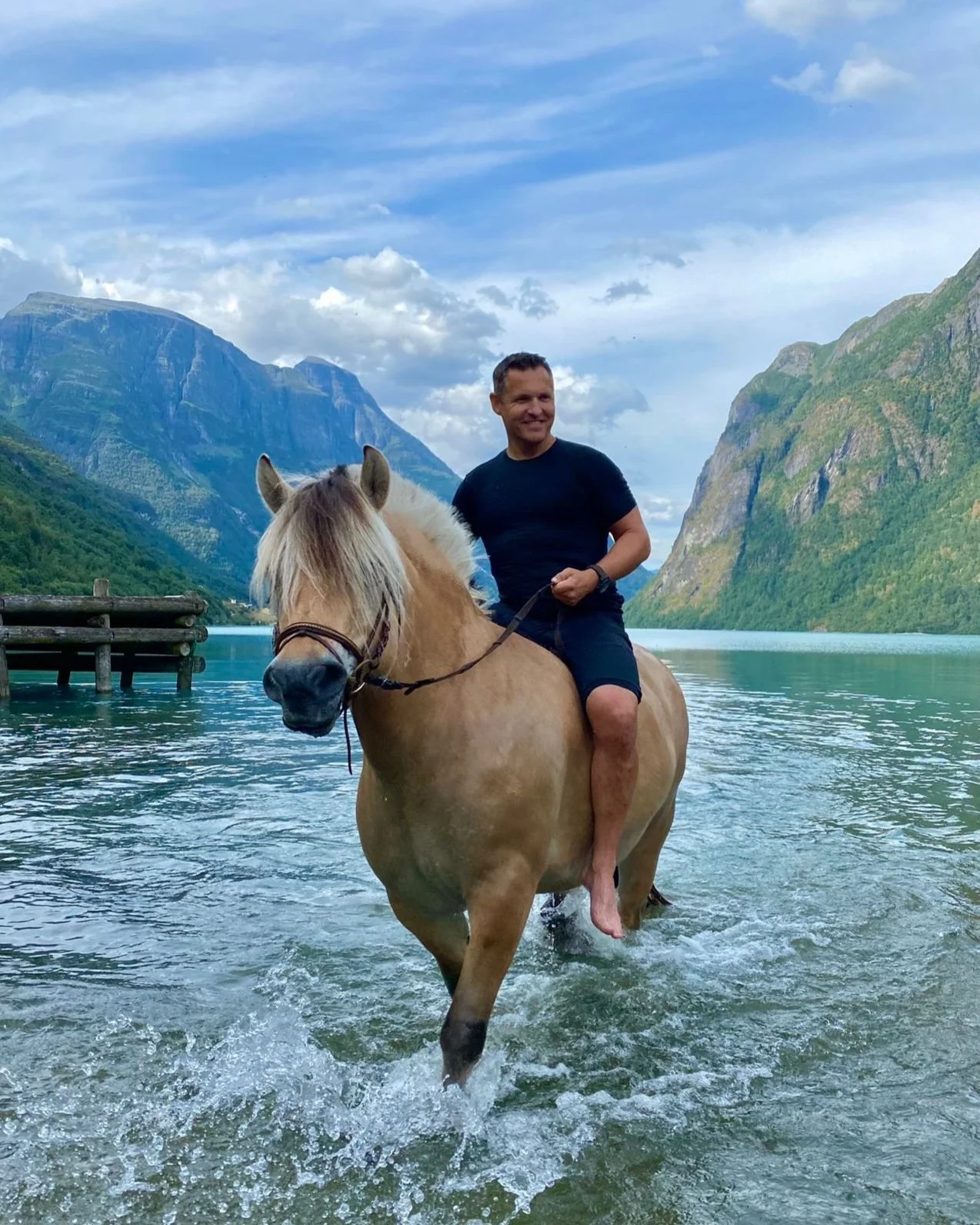London Grilling: Inge Solheim, Polar Guide & Survival Expert
Inge Solheim is no stranger to the extremes. Known globally as one of the leading polar explorers and adventure guides, he has traversed some of the most daunting and pristine landscapes on Earth. His remarkable expeditions have not only tested his physical limits but have also made him an invaluable guide to celebrities and influential figures seeking adventure, including Prince Harry, with whom he trekked to the North Pole for the Walking With The Wounded charity.
His work on the acclaimed 'Harry's Arctic Heroes' documentary further highlights his commitment to supporting veterans and raising awareness about their challenges. In addition to his polar exploits, he has guided well-known personalities such as Alexander Skarsgård and Dominic West across icy terrains for charitable causes, showcasing his expertise in managing both the psychological and physical demands of extreme environments.
His unique experiences have equipped him with profound insights into resilience, mental toughness, and the human spirit's capacity to overcome adversity. As cities around the world observe Mental Health Awareness Month, who better than Inge to discuss strategies for maintaining mental well-being in the relentless pace of urban life?
Join us as we delve into a conversation with this modern-day explorer who navigates not only the icy wastes of the poles but also the complex challenges of urban mental health. Discover his expert advice on transitioning from the solitude of nature to the bustling streets of a city, along with tips for building mental resilience against urban stresses.
Inge, with your extensive experience in some of the world’s most tranquil and isolated spots, how do you find transitioning to the hustle and bustle of a city like London after your expeditions?
It is sometimes difficult to adapt when I have been immersed in nature for a while. The noise and fast pace can be a bit overwhelming. But there are many quiet places to find in London. And some calm people to relate to. You won’t see me in Oxford street very often.
For Mental Health Awareness Month, we’re keen to explore coping mechanisms for those living in urban areas. Could you share any personal strategies that help you maintain mental wellbeing in the city?
What impacts our mental health is very complex and has many variables. Try to understand yourself. Be curious, observe, be honest, take responsibility for your own situation. I make an effort to relate to only what is relevant to me. I try not to get caught up in the hustle and bustle. I avoid places and people that drain my energy, steal my time, or overload my senses.
You have guided people through physically and mentally demanding conditions. What lessons from those experiences do you think are transferable to everyday urban life?
Focus on what is important and do that well. Try to manage your energy and health wisely. A healthy body and mind can thrive in the most extreme situations. Even in the hectic World capital London.
Given the calming effect of nature on the mind, what suggestions do you have for city dwellers to integrate natural elements into their daily urban life?
Make a conscious effort to connect with nature. We are nature and that’s where we belong. Walk through the park. Listen to birds and observe what’s going on around you. Take little breaks, soak in nature and ignore the Matrix sometimes.
Resilience is a common theme in your adventures. How can individuals cultivate and strengthen their mental resilience amidst the stresses of city life?
Too many people today have lived a relatively protected life, where they have not had to take responsibility for their own situation, not been challenged physically or mentally. Many people have also been told that they should always listen to their feelings.
Mental and physical robustness can only come from being tested and through training. Ask yourself, what can I do to cope better in my life, my family, my mind, my city. Find the answers that works for you. But don’t expect the journey of discovery to be comfortable. Challenge yourself and feel how the universe gives you feedback.
Could you talk about a time when urban living posed significant challenges for you, and the strategies you used to address these challenges?
After a 3 month expedition on the Greenland icecap, it took time to acclimate to city life. I was hiding at home for a few days before I could face the noise, the scents, people and traffic.
Finding tranquillity in the city can be tough. What are your personal methods for discovering peace in noisy environments?
I ignore things that are not relevant to me. In all aspects of life, we have to give things, situations, people and feelings the attention that they deserve. It is our responsibility to balance this in a wise way.
The relentless pace of urban life can be overwhelming. How crucial is establishing a routine, and could you describe your typical daily routine in the city when not on an expedition?
I have made life choices that has freed me from most routines. But I try to sleep enough, eat healthy, and cultivate positive and meaningful friendships and family relations.
Mental health is often overlooked until it becomes a critical issue. What proactive measures do you take to keep your mental health in check?
Be conscious of what positive or negative effect things have on you. Be curious about who and how you are. Sometimes we are our own worst enemy. Sometimes the problem is you. It is easier to have a relevant and healthy response to what is happening, if you get rid of noise in your life. Examples of mental noise can be fear, or commercial impressions, negative or bad people, or your own ego. Explore
Lastly, what advice would you give to our readers who feel swamped by urban life and are seeking effective ways to manage their mental health?
Get out ! Get out in nature, make proactive steps to change things you are not happy with, and break patterns. Helping someone else, can give you healthy perspectives of your own situation.




